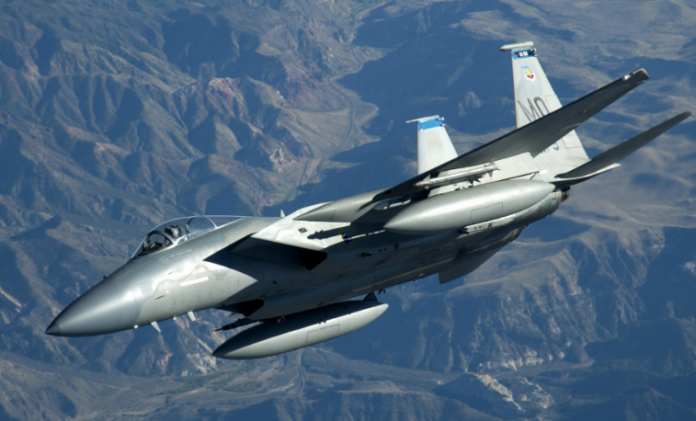On October 27, the United States conducted air strikes on two Iranian regime-affiliated ammunition and weapon storage sites in eastern Syria. Secretary of Defense Lloyd Austin clarified that these actions were a direct response to recent assaults carried out by militia groups with Iranian support against U.S. installations in Syria and Iraq.
In a statement, he emphasized that these air strikes were clearly separate from the ongoing conflict between the Israeli government and the Palestinian terrorist group Hamas. As of now, there has been no comment from the Iranian regime regarding these air strikes.
Various accounts indicate that these air strikes were carried out around 4:30 local time by two U.S. F-16 fighter jets in the vicinity of the Syrian town of Abu Kamal. This town, situated close to the Iraqi border, has witnessed a significant presence of militias with Iranian backing in recent years. The exact count of casualties resulting from the air strikes remains uncertain.
In his official statement, Austin made it clear that these air strikes were precise acts of self-defense carried out in response to the militia groups’ unsuccessful attacks. He also pointed out that these hostilities began on October 17 and persisted for nearly a week.
In a distinct statement, the Pentagon reported that 21 U.S. military personnel sustained injuries in these strikes, and they attributed these actions to proxy groups associated with Iran operating in the region. Independent investigations have indicated that the Iranian regime has provided support to Hamas in Gaza and Hezbollah in Lebanon over the past few years.
On October 26, the White House announced that President Joe Biden had previously cautioned the Iranian regime regarding any assaults on American personnel in the Middle East. In reply, Iran’s Foreign Minister, Hossein Amirabdollahian, conveyed at the United Nations General Assembly in New York that the United States would not escape the repercussions of the ongoing violence in the Middle East should the conflict in Gaza persist.








